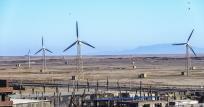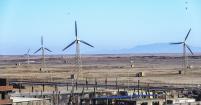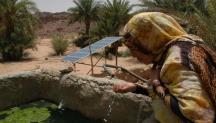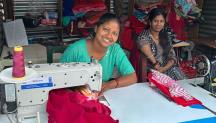

Africa Clean Energy Corridor to Boost Renewable Energy
Newsletter
African ministers commit to accelerated development of renewable energy and energy infrastructure
Energy ministers and delegates from 19 countries committed to the creation of an ambitious initiative, the Africa Clean Energy Corridor, at a meeting in Abu Dhabi, convened by the International Renewable Energy Agency (IRENA). The Corridor will boost the deployment of renewable energy and help to meet the rising African energy demand with clean, indigenous, cost-effective power from sources including hydro, geothermal, biomass, wind and solar. The ministers and delegates endorsed the Action Agenda on the eve of IRENA’s Fourth Assembly, set to begin on January 18 in Abu Dhabi.
“The Africa Clean Energy Corridor will provide the continent with the opportunity to leapfrog into a sustainable energy future,” Adnan Z. Amin, IRENA’s Director-General said at the meeting. “The dynamic development that Africa will see in the next decades needs to extend to the energy sector, and Africa’s abundant renewable energy resources are a perfect match to meet rising demand in a sustainable and cost-effective way – from Cairo to Cape Town.”
Electricity demand is expected to triple in Southern Africa, and quadruple in Eastern Africa over the next quarter-century. As power demand multiplies, the region’s current dependence on fossil fuels becomes increasingly economically and environmentally unsustainable. A regional approach to developing the vast renewable energy resources will help optimize the energy mix and attract more investment. The Africa Clean Energy Corridor builds on, and adds to, the transmission network laid out in existing programmes for infrastructure development in Africa.
“The Africa Clean Energy Corridor helps leverage the tremendous opportunity that renewable energy presents, for the best of the African states and the entire continent,” H.E. Alemayehu Tegenu, Ethiopia Minister of Water, Irrigation and Energy, said. “The fact that IRENA, with its resources and know-how, is able to facilitate this large-scale, trans-border initiative demonstates the importance of the organisation for Africa and the deployment of renewables.”
The Action Agenda includes the identification of renewable power development zones to cluster renewable plants in areas high with renewable resource potential; integrated resource planning to include greater shares of renewable energy in the energy mix; new financing models and investment frameworks; knowledge and capacity building by IRENA; and public information campaigns.




